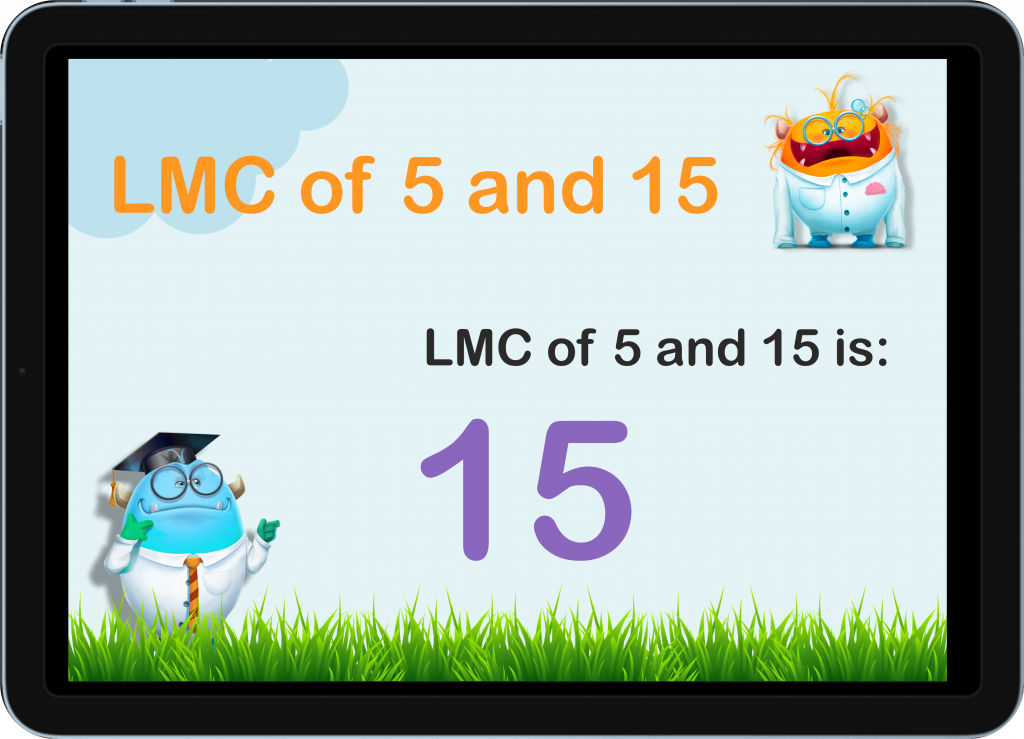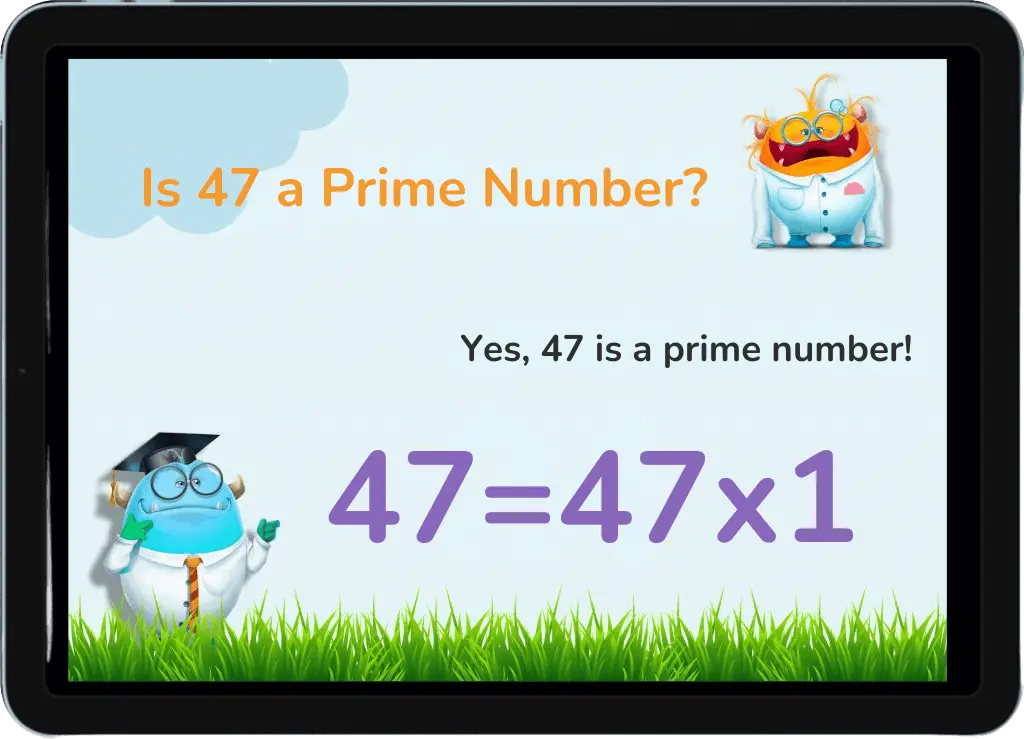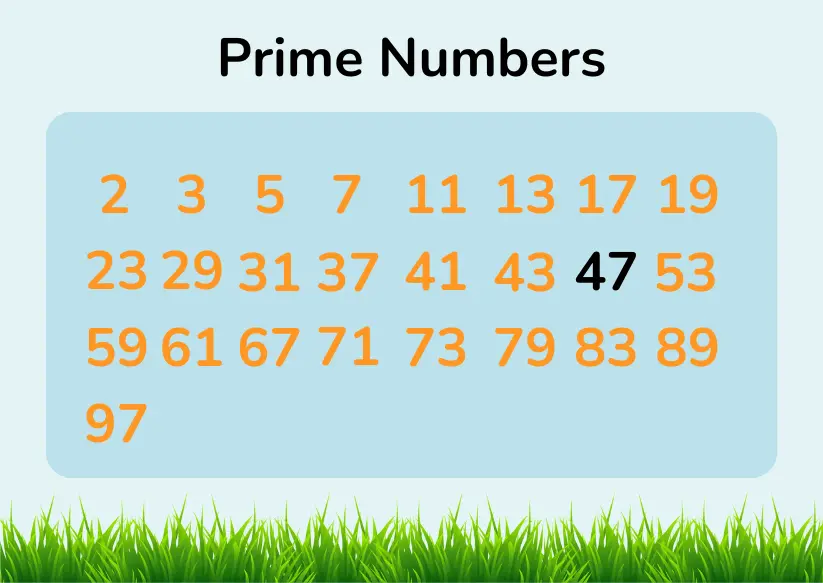Is 2 A Prime Number?
Prime vs. Composite Numbers
Greetings, young math enthusiasts! Today, let’s set sail on a mathematical voyage to determine if 2 is a prime number, and learn more about the difference between prime and composite numbers.

Is 47 a Prime Number?
Or Is 47 a Composite Number?
We have a question for you? Have you ever heard of Lucas prime, Einsteinian prime, or even a safe prime? They all mean different things. Number 47, if you’re wondering, is all of the three things and a prime number. Join us, we’ll show you all the fun bits.


No credit card required

No credit card required
What are Prime Numbers?
Is 47 a Prime Number?
What Are All the Factors of 47?
What is So Special About the Number 47?
Is 47 a Twin Prime?
Is 47 a Sexy or Cousin Prime?
Is 47 a Composite Number?
Have you ever wondered about the secrets hidden within numbers? Prime numbers are the unique jewels of mathematics. They are different and intriguing in math as much as in the real world.
Today, we’ll explore the fascinating world of the number 47. Ready to embark on this mathematical journey? We’re sure you are!
What Are Prime Numbers?
Before we dive in, let’s clarify what makes prime numbers so different.
A prime number is one that can only be divided by 1 and itself without leaving any remainder. Imagine prime numbers as the exclusive members of a club; they only have two “friends”: 1 and themselves. Examples include 2, 3, 5, 7, and 11. Their uniqueness lies in the fact that they can’t be divided evenly by any other numbers.
Prime numbers form the foundation of mathematics, much like the basic building blocks for all other numbers. Just as you can construct anything with a few types of blocks, you can build any number using prime numbers!
Is 47 a Prime Number?
 Yes, 47 is a prime number. It can only be divided evenly by 1 and itself without leaving any remainder. This means 47 has no divisors other than 1 and 47. Therefore, it qualifies as a prime number.
Yes, 47 is a prime number. It can only be divided evenly by 1 and itself without leaving any remainder. This means 47 has no divisors other than 1 and 47. Therefore, it qualifies as a prime number.
What Are All the Factors of 47?
The number 47 is a prime number, which means it has no divisors other than 1 and itself. Therefore, the only factors of 47 are:
- 1
- 47
This is because 47 cannot be divided evenly by any other numbers without leaving a remainder. Prime numbers, by definition, have exactly two distinct positive divisors.
Is 47 divisible by 2? No, because 47 is an odd number, so it can’t be divided by 2.
Is 47 divisible by 3? Add the digits of 47 (4 + 7), which equals 11. Since 11 is not divisible by 3, 47 isn’t either.
Is 47 divisible by 5? No, because it doesn’t end in 0 or 5.
Since 47 isn’t divisible by 2, 3, or 5, and there are no other smaller numbers to check, we can confidently say that 47 can only be divided by 1 and itself. Congratulations, 47, you are a prime number!
What is So Special About the Number 47?
Numbers often have interesting stories, and 47 is no exception. Here are some cool facts about 47:
- Twin Prime: 47 forms a twin prime pair with 43, meaning they differ by only 4.
- Pythagorean Prime: 47 can be expressed as the sum of two squares: 47 = 4^2 + 5^2.
- Lucas Number: 47 is part of the Lucas number sequence, which is similar to the Fibonacci sequence.
- Safe Prime: 47 is a safe prime because (47-1)/2 = 23, which is also a prime.
- Unique Sum: It is the sum of 3 consecutive primes: 11 + 13 + 23 = 47.
- Star Number: 47 is a star number, which can be represented by a star-shaped pattern.
- Hexagonal Star Number: It is also a hexagonal star number, which means it can form a hexagon with a star inside.
Is 47 a Twin Prime?
Yes, 47 is a twin prime. It pairs with 43, another prime number, as they differ by only 4. This pairing makes them a notable example of twin primes.
Is 47 a Sexy or Cousin Prime?
Yes, 47 is a sexy prime. It forms a sexy prime pair with 41, meaning they differ by 6. If they differ by 6, then they make a sexy prime. However, 47 is not a cousin prime. Cousin primes are pairs of primes that differ by 4, and 47 does not have such a prime pair. Therefore, while 47 is a sexy prime with 41, it does not qualify as a cousin prime.
Is 47 a Composite Number?
No, 47 is not a composite number. Composite numbers have more than two divisors, whereas 47 can only be divided evenly by 1 and itself. This makes 47 a prime number, not a composite one. Therefore, 47 is part of the set of prime numbers, which have exactly two distinct positive divisors.
Start Learning, It’s Fun!
Smartick offers fantastic free learning courses where you can dive deep into the world of prime numbers and much more. It makes math fun and engaging, turning learning into a playful adventure. With interactive lessons and games, Smartick ensures that math is not only educational but also enjoyable.
You’ll find yourself looking forward to each session as you explore new mathematical concepts in a captivating way.
What are you waiting for? Give it a try and see if you find math much more exciting!
Learn More About Prime Numbers
© 2024 Smartick. All Rights Reserved.
